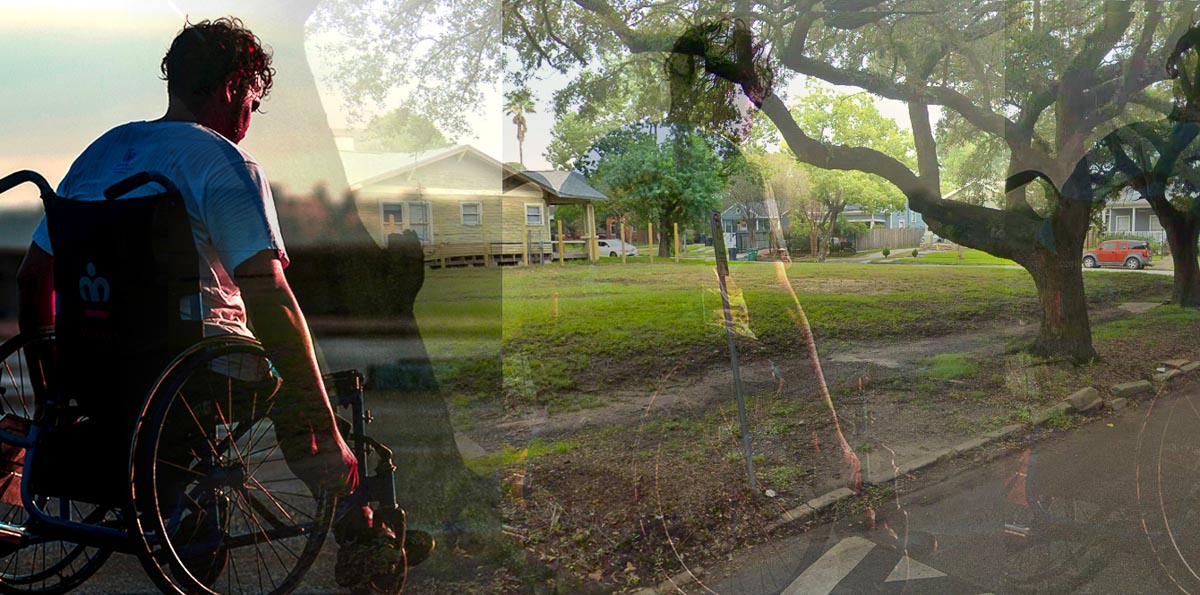In a city of more than 2 million, nearly 10% of Houstonians live with a disability. We expect this figure to rise as the population continues to age in the coming decades. Some studies suggest that by the year 2050, 21% of the nation’s households will have at least one member who is disabled.
This is an astounding figure for public officials to consider in urban policy and development, both here in Houston and elsewhere in the United States. Further complicating these estimates is the fact that Baby Boomers are now opting to age in place, necessitating costly retrofits both in the home and in the public realm.
In theory, urban planners, designers, public officials and other decision-makers should consider the needs of all residents, regardless of age and ability. Every decision made at the drawing board can have a disparate impact, or unintended consequence, on the quality of life of those with limited abilities, both now and in the future.
Thirty years ago, President H. W. Bush helped pass the Americans with Disabilities Act (ADA) and the Fair Housing Amendments Act (FHAA), enshrining this inclusive approach to decision-making and other public processes. Undoubtedly, both have played a vital role in facilitating much-needed change in the public realm for people with disabilities. And yet, glaring inequalities continue to persist.
Considering the everyday challenges
Hurricane Harvey proved a disaster for the city at large, but the impacts were that much more acute for those living with a disability. Many were in need of additional assistance that either didn’t come or took longer than anticipated. Some even lost their accessibility-enabled homes following the storm, with nowhere else to go that was suited to their needs.
Even beyond a disaster like Hurricane Harvey, Houston’s built environment seems more like an insurmountable wall than anything else. Navigating some of Houston’s crumbling or nonexistent sidewalks, I often wonder how someone might get about the city in a wheelchair.
These are just some of the urban challenges we’re thinking about here at the Kinder Institute. And yet, there is very little hard data to back up our convictions and our desire to affect change where it’s needed most. That’s where we hope you can help.
New study will apply data to accessibility issues
To better advocate on behalf of the needs of people with disabilities, we are launching a new study that brings the power of data to an area of research where it does not currently exist in Houston and Harris County.
If you or someone you know is living with a disability, we need to hear from you in our survey. The success and long-term impact of our research at the Kinder Institute ultimately rests on the invaluable input we receive from you, the Houston public.
Your experience living in the Houston region will provide us, and ultimately the decision-makers, guidance as this study moves forward. Your unique story will also help shape the future of Houston — a city we hope can be more inclusive and accessible to all.
To take or share our survey, please follow the link below. Please note that the survey is currently available in both English and Spanish.
The Kinder Institute Housing and Neighborhood Survey for Houstonians with Disabilities

